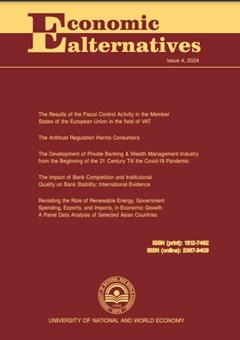The Antitrust Regulation Harms Consumers
Author: Georgi Kiranchev
Abstract
This article examines the effects of antitrust regulation. It is always assumed that this regulation has the purpose and function of protecting the interests of consumers. The other function of regulation is to protect competition, and it is assumed that this also indirectly protects consumer interests, because the dogma ‚the more competition the better‘ is accepted without reservation. We will demonstrate that antitrust regulation can harm consumer interests and will consistently prove the following theses in general: Antitrust regulation leads to a new, forced market equilibrium from which no participant has an interest in deviating. Regulation results in an equilibrium that is less profitable for consumers but more profitable for players that are not subject to antitrust regulation. In maximising their profit, players will offer quantities to the market such that the price on the market will increase and the total quantity offered will decrease. The efficiency of production decreases as a result of regulation. Although anti-monopoly regulation leads to a redistribution of market shares and profits, it generally leads to an increase in the equilibrium price for consumers and thus harms their interests.

